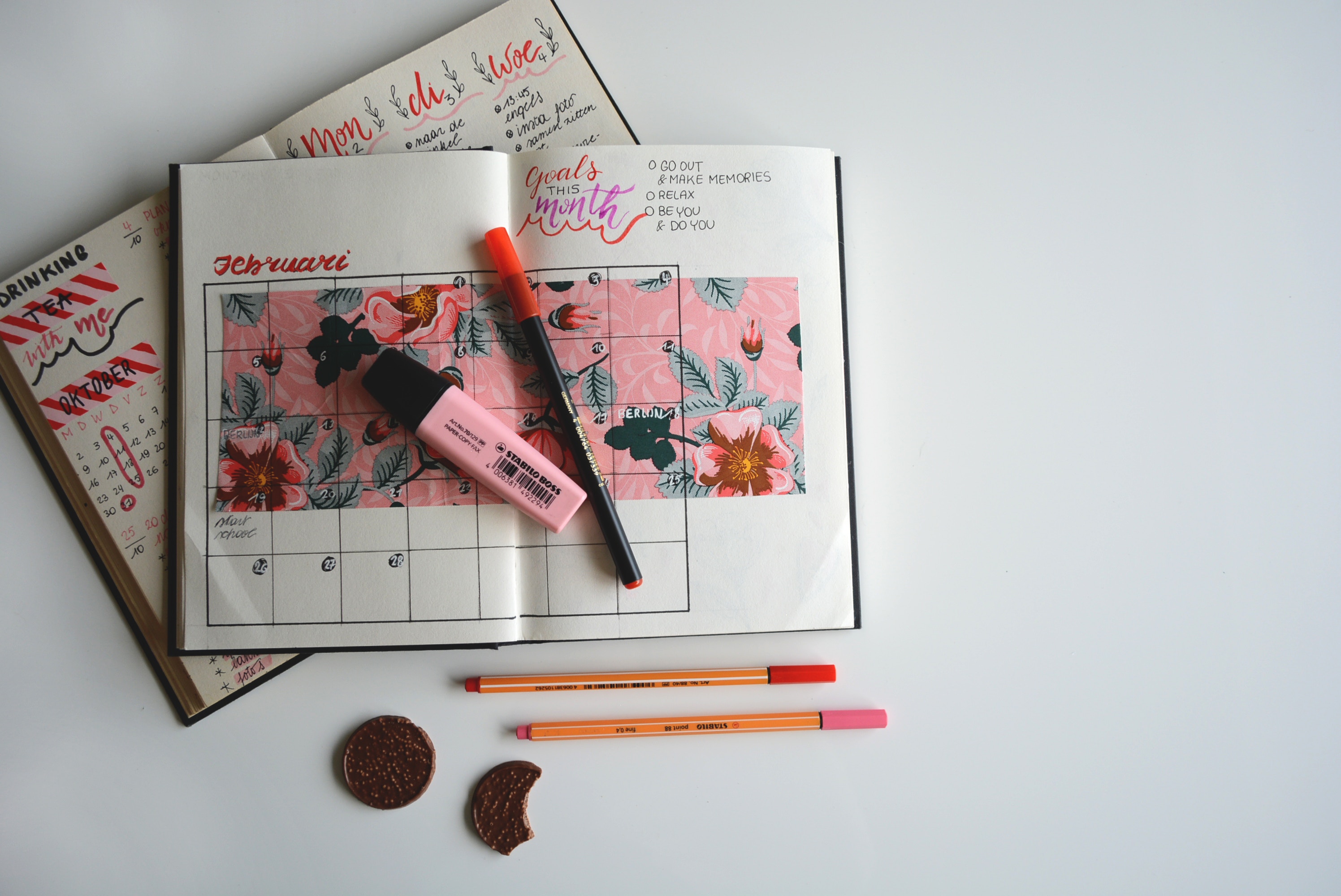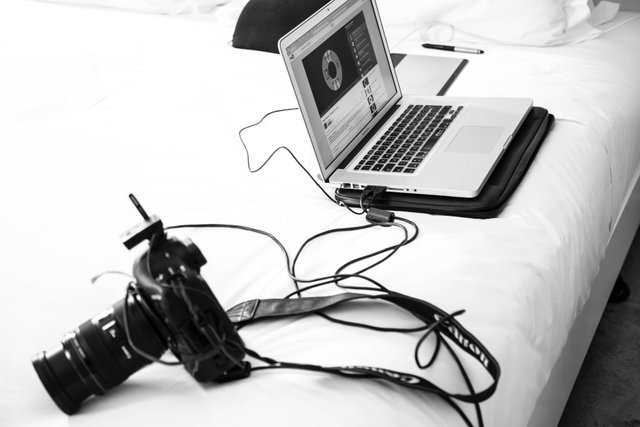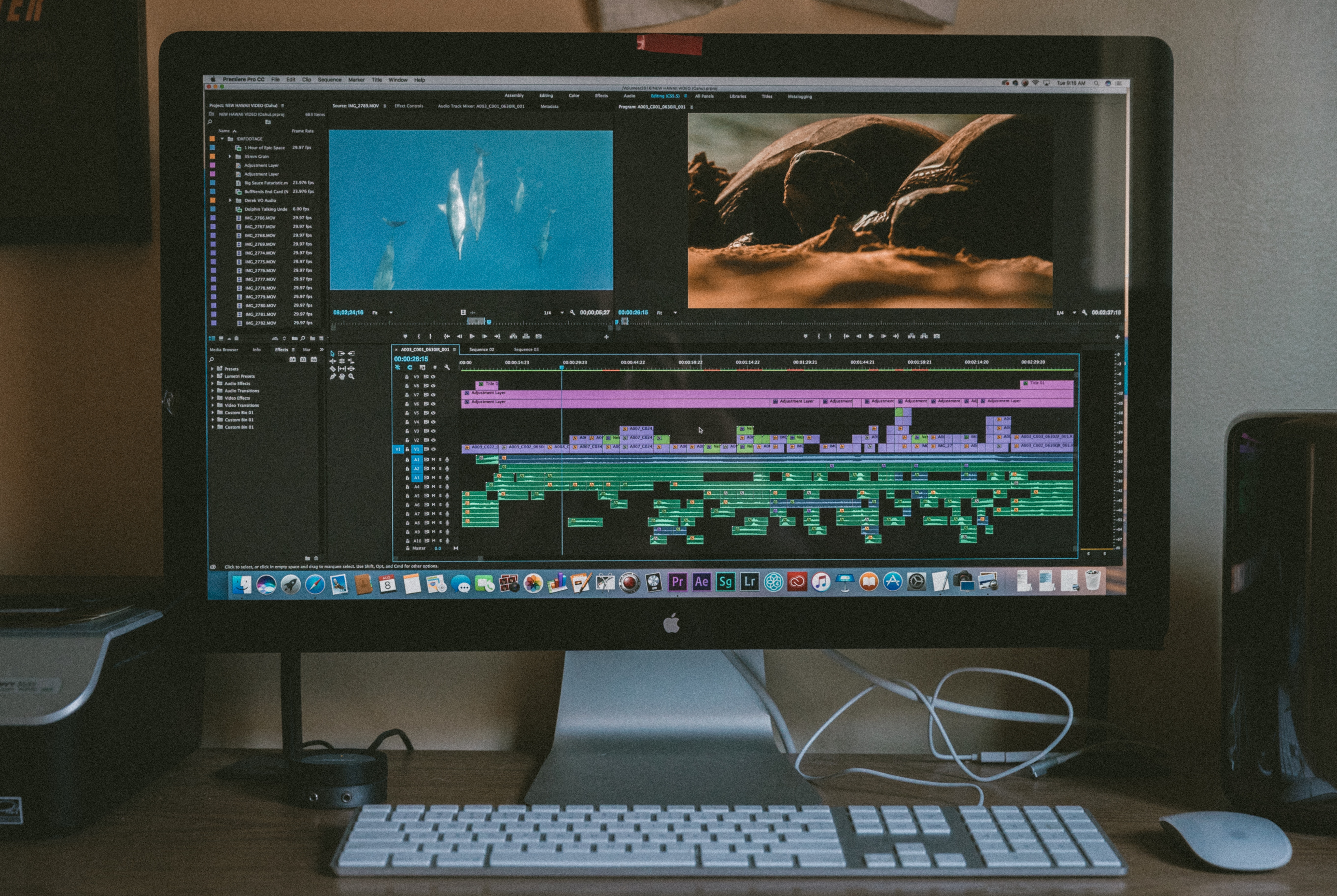How to Manage Your Time as a Content Creator

Let's talk about how to manage your time as a content creator today.
I suspect there are a few of you that are now creating content on a regular basis...
but are unsure about how to manage your time as a content creator effectively.
There is so much to do as a content creator beyond the actual execution of the content. Let's break it down.
These are the key phases of content creation:
- Conceptualization
- Production planning
- Production
- Post Production
- Distribution
- Analysis
- Re-Purposing
- Networking
Holy crap, that is a lot to be aware of. And these are just the ones I could come up with.
Let's go through all of these sections and try to determine how to best use your time in all of these areas.

Conceptualizing Your Content Pieces
When it comes to conceptualizing an idea for a new piece of content I feel that it comes pretty naturally. You don't have to do much or put much dedicated time into this.
Things will often just pop into your head. Ideas are often very spontaneous.
But ideas are also plentiful. When you get one, make a note of it (I use Workflowy and Evernote).
A lot of times you will be in another phase of content creation on another project when you'll get a new idea. New experiences and insights often lead to new ideas.
Make sure you just keep the idea in a note somewhere, because you don't want to get distracted from the task at hand.
I think you should put only a small amount of dedicated time each week into the conceptualizing of new pieces of content.
As most of your best ideas will come when you weren't even expecting them!

Production Planning
This really depends on the type of content you create. If you are a blogger, you may have little to no production planning. I just started to write this article without much concern and many of you will do that do too when you can speak your truths without much need to plan.
However, if you are doing more studio photography or videography, pre-production planning can be very important.
When it comes to planning you may need to book a location, book talent or gather equipment such as cameras, tripods, lighting, sound, etc. You may even need to test your shots before you execute the real deal.
In my experience every piece of content you create gives you more insight on how to create the next one. It's like learning a spell in a video game. Once you have it, you have it. You can summon it at will for the duration of your life.
I definitely wouldn't over look production planning. The pre-shoot process can be critical and game-changing depending on the work and consequences of failure. Do your diligence.
But only you will know if your process requires this phase so act accordingly. I suspect most of you will allot 30-60 minutes to this part and that will be fine.

Production
Your craft is your craft. It takes as long as it takes.
Some people write blog posts in one hour. They drop their knowledge and move on.
Some people write very expansive, citation heavy articles, those may take 1-2 days to complete.
The same goes for video makers. Some people are doing basic vlogs while others are doing film-like projects.
But without a doubt we should give heavy priority to our production phase of content creation.
This is our product. This is how we connect with the world. Your content is your connection to the whole.
I recommend you dedicate a lot of the resources to this phase. And if everything else was to drop, as long as you maintained the energy here things should be fine.
Every piece of content you create will link you to a moment in the past. It will be part of your living digital legacy.
Don't skimp on what matters most.

Post-Production
So if you are a writer this includes: proof reading, editing, formatting headers, SEO and images. You are preparing your content for publishing on your website or platform.
If you are a podcaster this includes: editing your piece, adding intros and outros, volume adjustment and exporting files.
If you are a video producer this includes: editing, audio adjustments, color correction, graphics, titles and exporting files.
Writers are most likely going to have it the easiest because they are working with the most footprint-light data. Text is very lightweight so we can be very fast with it. Whether its editing or publishing things happen fast.
In the audio and video world, we have file sizes that still take time to create. We still have to wait for video processing to render. So the more visually heavy your work is, the longer you are going to have to spend in post-production just because the computers need time to work.
Post for video can be extremely long depending on what you are working on. Sometimes a one hour video shoot can require 4-6 hours of editing.
Be prepared to spend more time here than you think.
I find the more you create in volume during production, the easier it is in post because you aren't scrambling to put something good together. If you shoot 30 minutes and edit down to 8 minutes you will find some good stuff. It might even be an 80/20 rule. It's fine to leave things on the cutting room floor.
When I produce video I often leave clips out and use them in a future video when it is relevant or timely. I call this lost footage.
Post-production isn't the most important but it is going to take up a lot of time and it is still important if you want to be a great content creator.

##Distribution is the second most important aspect of Content Creation and arguably the first.
It really depends on how you look at it. A lot of people find the world of content creation so much more satisfying in this generation than in the past because there is opportunity for international awareness at scale and you can monetize.
Content creation has always been around, it was just in different forms.
And before when you drew something on a cave wall, not many people would ever come across your work. Things weren't exactly going viral.
That's why some may say that distribution is actually more important than the creative part itself. Because if no one sees your work, did it really exist?
People in modern times get validation over likes, subscribers and that Paypal money. It's not just about being expressive or creative. People want to get paid too.
I think the point is that many people know how to create but only few are champions at distribution. It might be a determining factor for success.
A lot of great content has gone completely unnoticed in the past decade.
As a content creator we should spend time in sharing our work using effective methods of reach.
You should spend an equal amount of time in distribution as you do in pre-production, production and post-production combined. Most of you won't do that, but I think if you tried the results would be interesting.
Bloggers don't just have to stop at posting to wordpress. And vloggers don't just have to stop at uploading to Youtube. There is more you can do to get your work out there.
Spend more time than you think you should in distributing your work and gaining more eyeballs.
![]()
How much time should you spend analyzing Google Analytics numbers?
Not much. I try to pop into Google Analytics every month or so for each major property I manage.
Remember, analytics don't do much unless you have a question you want answered. Data answers questions. The data itself has no insight.
So maybe you want to know if you should make your website more mobile responsive so you check device usage and see what the ratio of desktop to mobile is and where it's trending.
Maybe you want to see what the most visited page is after people read your about page, you could find out in GA.
I would not be spending more than an hour a week on data analysis and even that sounds a bit heavy.
The only case I would be spending more time looking at analytics is if I was running an ad campaign. But for general organic growth data, reviewing it once a week it sufficient.
You want to learn but you don't want to obsess.
Get a lot more from your content by re-purposing it
Re-purposing doesn't mean re-posting. It means taking an old piece of content and altering it in some way to bring new value. It might be changing it from video to audio and posting it to sound cloud. It might be taking an article and making a slide share. It might be taking a video and making it into an info-graphic.
Re-purposing falls into the production category but it is worth mentioning. You get a lot of value from re-purposing so make sure you create enough value for the reader so you aren't just spamming old material.
However, don't be afraid to post old material if you generally post a lot and you think many of your more recent followers haven't seen it. I think it's great to be re-posting links on Twitter (monthly) and Instagram stories (weekly re-posts are actually okay imo).
Try spending two to four hours a week re-purposing old material and see if you like the results.

Networking as a content creator
There are two forms. You and other creators. And you and your fans.
It is so critical to answer all of your comments that you get on your content in 2018. That is what people love! They comment to engage you and they want to start a conversation! This is social media my friends. Start talking. Open up a bit.
I think this is very important as a content creator to have some aspect of networking happening every week and even every time you post. Answer your damn comments!
Every piece you create should give you more confidence to reach out to other content creators for collaboration.
A big part of growing your audience is networking and doing collaborations with other creators who can shout you out on their platforms.
Try to spend as much time networking as you do conceptualizing. It can be very rare or very intense. Do it when it feels right and natural.
But remember to always engage your fans. Always be looking for your next great collaboration where you can bring someone value and they can do the same for you.
##How to manage your time as a content creator (Priority setting)
This is how I set my priorities in terms of how much time and energy to spend in these areas as a content creator.
- Production
- Distribution
- Post-Prodcution
- Networking
- Planning
- Conceptualizing
- Repurposing
- Analyzing
###That is my 0.02 on how to manage your time as a content creator.
Hope this piece helps you guys better understand yourself as content creators.